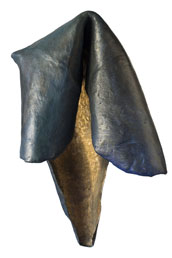Pages: 1 2
Fatherhood 4.0: iDad Applications Across Cultures
by Dalton Higgins
London, ON: Insomniac Press, 2010
195 pp. $19.95
Fatherhood 4.0 is an altogether different kind of approach to the question of what fatherhood means in today’s world, but Higgins shares McPherson’s bottom line about daddyhood, which is that its an identity that needs showcasing, and sometimes, also needs a little help. Higgins’ non-fiction text is a collection of interviews, poetic works, and essays with, by, and about fathers of the 21st century. Though Higgins does include voices from the “dominant culture”, his focus is primarily on a community of daddies that he explains has been
under-served, and is also desperately in need of support and more healthy media representation: people of color, or, as he abbreviates, POC.
Higgins begins his text by explaining why this group deserves, and indeed, requires special and attentive discussion and self-representation, noting that fatherlessness in minority groups (which he rightly notes, are not actually going to be minorities for very long) is a key factor in the cycles of poverty, violence and self-destruction, not to mention the cycle of fatherlessness itself, that haunts black and South Asian communities in Canada. Though he interviews a wide range of minority groups, and includes a touching personal essay by a pregnant trans-father, his text focuses on these particular cultural minorities, and seems to be rooted in the communities of Toronto, where the impact of fatherlessness is unavoidably visible on street corners, in alleyways, and in education records. Rightly though, Higgins makes a point of noting that white fathers are not exempt from these cycles, nor are any other cultural or ethnic groups, and he makes sure that the book includes fathers from many walks of life, with their own different family structures, and sexual orientations.
Fatherhood 4.0 is an engaging read, and part of the credit of that needs to go to the lively guiding narration of its host, Higgins himself. As a relatively young father, Higgins brings his own hipness and personal openness to the table, and so by explaining the relationships he has with the fathers he interviews, the book literally does the work it advocates, of bringing fathers together to discuss their influence in their children’s lives, and the impact their own fathers had on theirs. This action based project is perhaps the best thing about Fatherhood 4.0: it is honest about the fact that the book is a beginning, not a finale. It aims to bring fathers together in stories and self-exploration, and this is about more than reading a book – Higgins’ text ends with a poetic piece that really inspires thought and, he must certainly be hoping, social action.
Fatherhood’s interviewees are, thankfully, not all model fathers, though they all are invested in their own personal brand of fatherhood, and though culture certainly contributes to their stories, their narratives aren’t only important for POC to read. In fact, these interviews are probably important for anyone who has been a father, or has had one: the speakers are full of humor about their experiences, and share their own experiences candidly and comfortably. And, with interviewees ranging from Lawrence Hill (author of The Book of Negroes to Charles Spearin (of Broken Social Scene), with many other inspiring and varied stories in between, there is something for everybody. Notably though, the best reads are actually those that seem the furthest from your own story, and turn out to have a fundamental kernel, or even an off-side quirk, of familiarity. And this, one can imagine, is probably exactly what Higgins was hoping for.
Pages: 1 2





No Comments so far ↓
There are no comments yet...Kick things off by filling out the form below.